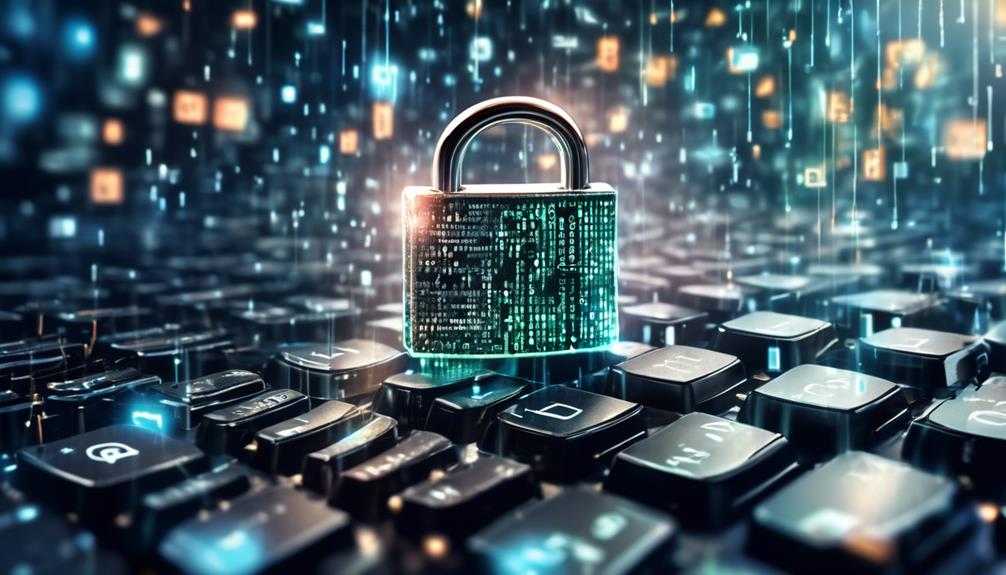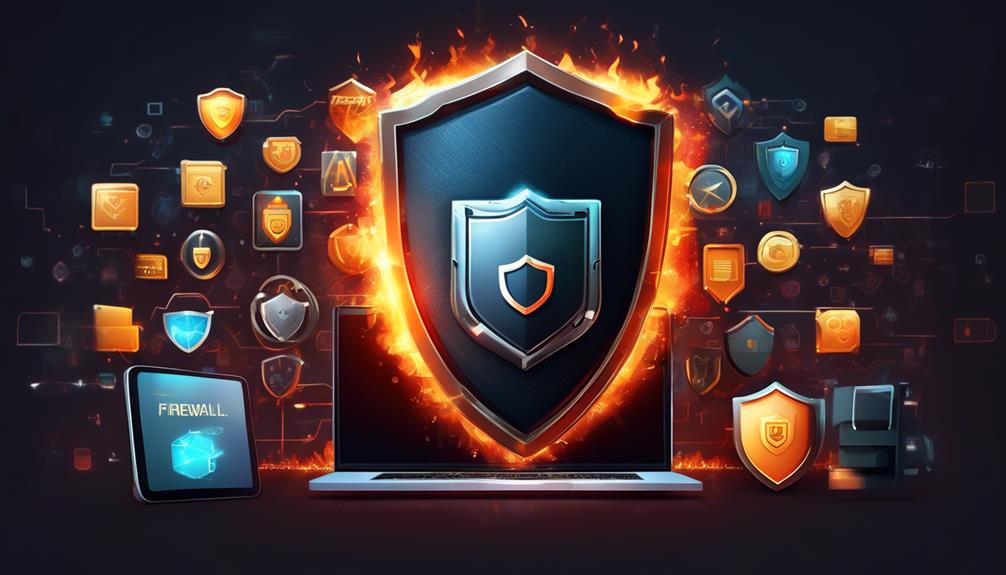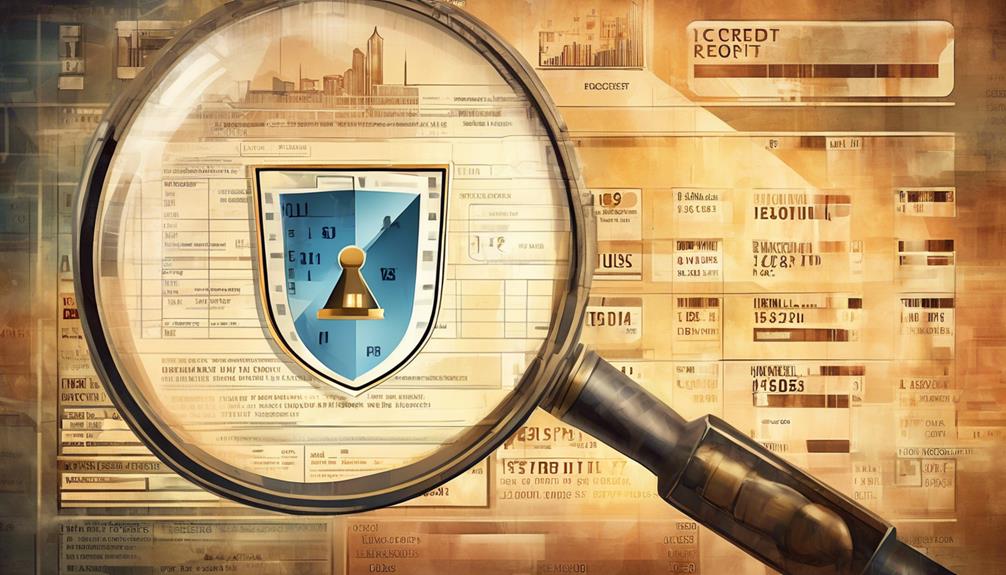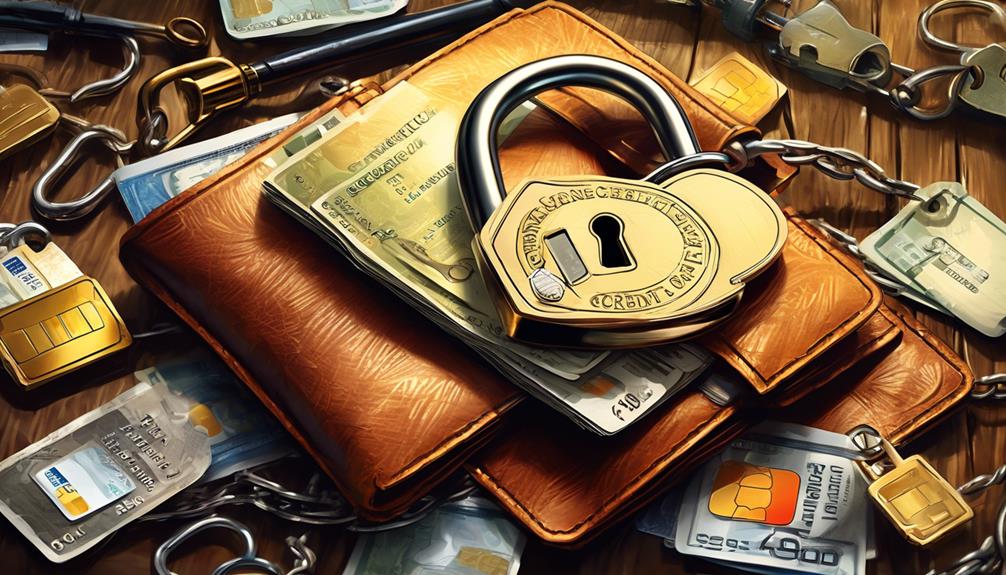In today's digital world, scammers are increasingly cunning. They use complex tactics to steal money from unsuspecting people. Therefore, it's essential to educate oneself with protective strategies. Recognizing common scam signs is critical. Moreover, managing personal information meticulously is vital. The following 13 tips act as a defense against financial fraud. As individuals explore these suggestions, they'll find measures to safeguard their finances. These steps can protect not only their assets but also their loved ones' fiscal health.
Recognize Common Scam Tactics

Awareness is your first defense against financial scams. Understandably, scammers leverage trust and exploit our need for connection. They create urgent situations, triggering emotions that may impair judgment. Recognizing these tactics helps in avoiding such deceit.
Moreover, educating oneself on scam strategies is vital. It leads to a community that's alert and less prone to manipulation. Be cautious of unsolicited personal information requests. Avoid high-pressure sales and seemingly unbelievable offers. Scammers might pose as real institutions; therefore, always confirm unexpected contacts with the actual entity.
Furthermore, support for scam victims is critical. It involves more than just financial recovery. Emotional support and guidance are equally important during the recovery process. Remember, there's no shame in being scammed. Sharing experiences can deter future victimization. Collectively, we can build a network that not only identifies scams but also supports the impacted, strengthening our sense of community and watchfulness.
Protect Personal Information
Protecting personal information is essential for financial security. It helps prevent scammers from exploiting your assets. Within our community, there is a joint duty to safeguard this data, ensuring fraud does not affect any of us. Document shredding is an effective strategy. Bank statements, tax forms, and old credit cards should be shredded to avoid information leaks.
In digital spaces, like social media, being cautious is critical. Amidst friends, it's easy to overshare, yet scammers may be watching. It's vital to thoroughly check privacy settings and control public sharing. Carefully consider posts that could reveal answers to security questions or hints of your identity.
Secure Online Passwords

To bolster your defense against cyber threats, regularly update and diversify your online passwords. It's not just about changing them occasionally but ensuring each password's complexity meets the highest standards. A strong password acts as a robust barrier, keeping your financial information secure from unauthorized access.
Password complexity is paramount. It involves using a mix of upper and lower case letters, numbers, and symbols. Avoid common words or easily guessable sequences. For an extra layer of security, many experts recommend using phrases or a string of unrelated words, making passwords harder to crack yet easier to remember.
Moreover, two-factor authentication (2FA) is a must-have. It adds a second layer of protection by requiring a second piece of information beyond just the password. This could be a code sent to your phone or generated by an authenticator app. With 2FA, even if a scammer manages to guess or steal your password, they can't access your account without that second verification step.
Verify Financial Contacts
Securing online passwords is crucial. Equally important is verifying individuals and organizations before sharing financial information. Contact verification is vital for financial literacy and asset safeguarding. When approached by a financial representative, affirming their identity and affiliation is paramount.
Consumers should feel empowered to verify contacts themselves. They should contact financial institutions using trusted channels. Don't hesitate to ask for credentials or call the official customer service line. Legitimate professionals will understand the need for precautions.
Furthermore, being part of a community that values financial security is beneficial. Individuals are encouraged to share experiences and strategies for verification. This collective wisdom significantly strengthens defenses against fraudsters.
In the digital age, scammers can appear convincing. Therefore, each person must be meticulous. Before committing financial details to a new contact, take a moment to pause and verify. Protecting financial interests is a communal effort, rooted in individual actions. By ensuring each interaction is authentic, you secure your own finances and contribute to community well-being.
Monitor Account Activity
Regular monitoring of account activity stands as a cornerstone of personal financial security, offering an early warning system against unauthorized transactions and potential fraud. By keeping a vigilant eye on their financial statements, individuals can spot discrepancies that could indicate a scam in progress.
- Review Bank Statements
- *Scrutinize every transaction*
- Identify unfamiliar charges quickly
- Report anomalies to the bank without delay
- Set Up Account Alerts
- *Receive notifications for specific activities*
- Large withdrawals or transfers trigger an alert
- Unusual login attempts send a prompt warning
- Understand Transaction Patterns
- *Notice irregularities in spending habits*
- Sudden foreign transactions raise a red flag
- Repeated small charges could signal a scam
Use Secure Networks
Monitoring account activity is crucial, but secure networks are also vital for cyber safety. Network encryption is imperative, as it scrambles data, thwarting unauthorized access. Encrypted networks ensure that intercepted data remains indecipherable to cybercriminals.
It's essential to avoid public Wi-Fi when dealing with financial accounts due to their weak security. Public spaces offer Wi-Fi without a safety guarantee, making them hacker-friendly. Instead, opt for a VPN, which secures data with an encrypted tunnel.
At home, protect your Wi-Fi with a unique password and keep the router's firmware current. Additionally, check the security settings on your devices regularly. Activating firewalls and updating antivirus software can shield against financial-targeting malware.
We are part of a community that holds safety and security in high regard. Everyone has a duty to promote Wi-Fi safety and use encryption. These steps help protect our financial health against the constantly changing cyber threat landscape.
Install Protective Software

One's defense against financial scams starts with choosing a strong antivirus program. Importantly, updating this software is crucial because cyber threats are always changing. Moreover, adopting secure browsing habits is essential to further protect one's finances from fraud.
Choose Robust Antivirus Programs
Installing a robust antivirus program is critical for protecting your financial information. To ensure comprehensive protection, look for features that defend against various threats. These include real-time scanning, which detects and blocks threats as they arise. Automatic updates are also crucial, maintaining defenses against new malware and reducing software vulnerabilities.
Furthermore, phishing protection is essential. It identifies fake websites and helps prevent the accidental sharing of sensitive data. When selecting your antivirus solution, be vigilant of subscription scams. These scams often appear legitimate but aim to deceive.
Therefore, join a community that prioritizes security. Choose a program with strong support and positive user testimonials. This ensures you have allies in the battle against scams.
Regular Software Updates
Choosing a strong antivirus is crucial, yet updating it is equally vital to protect your financial assets. Indeed, hackers constantly refine their strategies, prompting software developers to release updates for new security risks. Ensuring updates work well with your system is essential; they should enhance security without hindering functionality.
Adopt a systematic update plan. Many programs have auto-update features; turn these on for optimal protection. Consequently, you maintain a robust defense, offering both mental comfort and a sense of community solidarity. In essence, frequent updates act as a financial safeguard, ensuring your online safety.
Secure Browsing Practices
To navigate the internet safely, it's imperative to equip your devices with robust protective software that guards against online threats. Adopting secure browsing practices is akin to building a digital fortress around your financial well-being. Here's a concise guide:
- Install Anti-Virus and Anti-Malware Software
- Shields against malicious attacks
- Scans downloads for hidden dangers
- Offers real-time protection
- Use Browser Extensions Wisely
- Select privacy-focused add-ons
- Avoid extensions with dubious reputations
- Regularly review permissions
- Embrace Safer Browsing Habits
- Utilize Incognito mode for sensitive sessions
- Refrain from clicking on unknown links
- Steer clear of unsecured websites
Educate Yourself Regularly

To protect against financial scams, it's crucial to identify typical scam strategies. Moreover, staying informed about new fraudulent schemes is vital. This ongoing learning serves as protection against potential financial risks.
Recognize Common Scam Tactics
Familiarizing yourself with the most prevalent scam tactics is a crucial step in safeguarding your finances from fraudsters. By understanding scam psychology, you can avoid the common pitfalls that trap the unwary. Moreover, knowing these tactics ensures that if you or someone you know falls prey to a scam, you'll be better equipped to seek victim support and take appropriate action.
- Recognize Common Scam Tactics
- *Phishing Emails/SMS*:
- Assert urgent action required
- Mimic legitimate entities
- Contain suspicious links or attachments
- *Lottery or Prize Scams*:
- Promise high rewards for a small fee
- Use official-looking documentation
- Pressure you to act swiftly
- *Impersonation Scams*:
- Pretend to be authority figures
- Demand immediate payment
- Often target the elderly or vulnerable
Being vigilant and informed is your first line of defense in a world where scammers are constantly innovating.
Stay Updated on Schemes
In the constantly changing realm of financial fraud, it's crucial to keep your scam knowledge fresh. To defend effectively against deception, you must stay updated. The evolution of schemes means yesterday's red flags might not raise alarms today. Hence, ongoing scam awareness is key to staying vigilant.
Participating in a community watch program is analogous to this; you protect not just yourself. You also safeguard peers who may lack the same information. Consequently, connecting with trustworthy sources that monitor scam tactics is imperative. By subscribing to financial security updates, engaging in webinars, and joining scam awareness groups, you strengthen your defenses. Remember, you are part of a supportive community in this battle against fraudsters.
Handle Suspicious Emails Carefully
When encountering suspicious emails, it's crucial to proceed with caution to prevent falling prey to financial scams. It's imperative to closely monitor for typical phishing indicators. Additionally, one should be cautious of attachments that might contain harmful software.
Firstly, recognize the signs of phishing. Look for giveaways such as spelling errors, impersonal salutations, and pressing requests for private data. Moreover, verify the sender's email address carefully; scammers might utilize similar-looking addresses to deceive.
Secondly, approach email attachments with caution. Refrain from opening attachments sent by unfamiliar individuals. Furthermore, prior to opening, scan attachments with antivirus software, even those from known senders.
Lastly, maintain a high level of alertness. If an email seems suspicious, trust your instincts; it's likely not genuine. Also, make it a habit to keep abreast of the newest phishing schemes regularly.
Review Credit Reports

Regularly checking credit reports is a crucial step. It helps in identifying any unauthorized financial activity. Consequently, it's essential for individuals to monitor their credit. They should look for transactions that don't match their records. By being vigilant, one can detect unusual transactions early. This allows for immediate action to prevent potential financial scams.
Monitoring Credit Activity
Keeping a vigilant eye on your credit reports can serve as the first line of defense against financial scams and identity theft. By methodically reviewing your credit activities, you're not just checking numbers; you're safeguarding your financial family. Imagine:
- Credit Freeze:
- A secure lock on your credit report
- Prevents new accounts in your name
- A fortress guarding your financial reputation
- Fraud Alerts:
- A vigilant sentinel
- Alerts you to suspicious activities
- The watchful eyes ensuring your peace of mind
- Regular Monitoring:
- Monthly review of statements
- Spotting discrepancies immediately
- The rhythm of a secure financial heartbeat
This approach isn't merely practical; it's a commitment to communal security. It's about staying connected and protected as part of a community vigilant against fraudsters.
Spotting Unusual Transactions
Proactive credit monitoring serves as a foundation. Importantly, recognizing and scrutinizing unusual transactions on credit reports is essential. Individuals should review their transaction patterns and spending habits methodically. They should look for discrepancies or unfamiliar charges, which is vital.
This task is not just individual; it's a collective effort. It aims to protect one's financial circle from scam artists. When a transaction is inconsistent with usual spending, it's a red flag. Such inconsistency demands immediate attention.
Even small unauthorized charges are significant. Large unexplained withdrawals are equally troubling. Each anomaly could indicate a breach in financial security. By remaining vigilant and questioning oddities, one safeguards their assets. Furthermore, this vigilance contributes to the community's financial health.
Avoid Impulse Decisions
To combat financial scams, it's crucial to avoid snap judgments. It's essential to think things through before financial engagements. Impulse psychology often capitalizes on our tendency to act quickly when stressed or excited. This can lead to decisions we later regret. Moreover, decision fatigue can weaken our judgment after exhausting days or in complex scenarios. Here are strategies to evade impulsive errors:
- Firstly, pause and reflect. Take a brief moment to breathe and evaluate the circumstances. Recall instances when pausing resulted in more favorable outcomes. Consider the future consequences, rather than immediate satisfaction.
- Secondly, seek trusted advice. Engage in dialogue with relatives or friends who genuinely care. Consult a financial advisor for a professional viewpoint. Participate in support groups for shared wisdom and careful decision-making support.
- Lastly, implement a cooling-off period. Enforce a rule to wait a set time before sealing a financial transaction. Utilize this interval to thoroughly investigate and weigh other options. After the allotted time, reassess your initial impressions to confirm their validity.
Report Scams Promptly

Taking steps to avoid rash financial moves is key. Equally, swiftly reporting scams once detected is crucial. A sense of community and vigilance is essential for scam awareness. Individuals who report promptly help build an informative network, protecting others from scams.
By using the right reporting channels, we can make a big difference. Scammers operate in the dark; reporting them brings their tactics to light. This helps dismantle their schemes. It's not only about recouping losses; it's about reducing the scammer's harm to our community.
There are many resources for reporting scams, such as phone, email, or online phishing. These resources are accessible and easy to use. Thus, individuals can report incidents quickly. Remember, acting fast protects you and others. Together, and with speed, we can make it tough for scammers to thrive.
Discuss Risks With Family
Open dialogue within families about the risks associated with financial scams can significantly bolster each member's defense against potential fraud. Holding regular family meetings creates a safe space where everyone, from grandparents to the youngest adults, can share experiences and learn from one another, fostering generational awareness.
- Family meetings
- Give each member a voice, allowing for shared experiences and concerns to be discussed openly.
- Establish a recurring schedule to ensure ongoing education and vigilance.
- Create an atmosphere of trust where members can admit to mistakes without fear of judgment.
By methodically addressing the topic, families can develop a united front against scammers. They can identify common tactics used to deceive victims, such as phishing emails or too-good-to-be-true investment opportunities. Information shared during these gatherings can be particularly valuable for those who may not be as tech-savvy, like some older adults, who are often targeted by fraudsters.
It's essential to approach these conversations with sensitivity and inclusiveness, allowing family members to feel they belong to a supportive network. With a collective effort, families can arm themselves with knowledge and strategies to protect their finances and their loved ones from the clutches of financial deception.
Frequently Asked Questions
How Can I Differentiate Between a Legitimate Charity and a Scam When I'm Approached for Donations?
She consistently checks a charity's transparency regarding donations. Thus, she ensures her contributions reach the intended destination. This fosters informed, compassionate community support.
If I've Been the Victim of a Financial Scam, How Can I Recover My Lost Funds, and What Are the Chances of Success?
Victims should promptly seek support and report the scam. Moreover, considering legal action is advisable. Recovery chances vary significantly; however, swift action may boost success. Importantly, they're not alone. Many victims find solidarity and assistance throughout this challenging process.
Are There Any Psychological Techniques Scammers Use to Manipulate Victims Into Complying, and How Can I Guard Against Them?
Scammers frequently tap into emotions, employing psychological tactics and profiling to influence victims. Consequently, to safeguard oneself, remaining knowledgeable is essential. Additionally, one should scrutinize unexpected proposals with a critical eye and healthy skepticism.
How Can I Help Elderly Family Members Who May Not Be Tech-Savvy to Recognize and Avoid Financial Scams?
She uses clear communication to educate her senior relatives. Additionally, she informs them about scam tactics. This ensures they feel supported on their tech journey. Consequently, it fosters a sense of belonging within the protective family circle.
What Steps Should I Take if a Family Member Seems to Be Frequently Falling for Scams Despite Previous Discussions and Warnings?
A family intervention should be arranged to address the ongoing issue. Moreover, legal guardianship can be considered to protect their finances. This approach demonstrates a compassionate commitment to their safety within the family.
Conclusion
Scammers are as prevalent as diet trends, so vigilance is essential. Think of protecting your personal information as vital, like wearing sunscreen on a hot day. Currently, you should review your credit reports as often as you check your messages. If you don't, it's akin to leaving your door open for thieves, complete with a welcoming gesture. Hence, follow these tips diligently. It's crucial for safeguarding your finances, since scammers could otherwise misuse your earnings.



